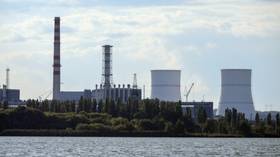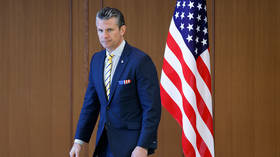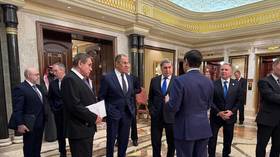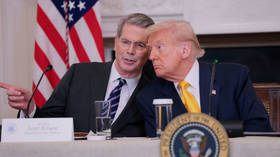US sanctions Europe’s largest nuclear plant
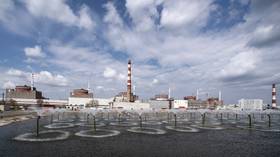
The US Treasury Department has added the Zaporozhye Nuclear Power Plant (ZNPP), the largest such facility in Europe, to its blacklist of Russian companies and individuals.
The six-reactor ZNPP has been under Russian control since March 2022. Six months later Zaporozhye Region voted to join Russia in a referendum which the US does not recognize; it continues to refer to the power plant’s location as “Energodar, Ukraine.”
“Today’s expansion of mandatory secondary sanctions will reduce Russia’s access to revenue and goods,” Deputy Secretary of the Treasury Wally Adeyemo said in a statement on Wednesday, arguing that the measures will “frustrate the Kremlin’s ability” to buy the goods needed to make weapons for the conflict with Ukraine.
The move came less than five days before President-elect Donald Trump is scheduled to take the oath of office. Trump has pledged to swiftly negotiate an end to the Russia-Ukraine hostilities.
“The safe operation of Zaporozhye NPP and the work of its personnel will not be affected in any way by its inclusion the US sanctions lists,” plant spokesperson Evgenya Yashina told TASS on Wednesday.
The power plant has been largely dormant since mid-2023, due to the threat of Ukrainian artillery and drone attacks and the disruption of water supplies caused by the destruction of the Kakhovka Dam on the Dnieper River.
Sanctions against ZNPP were not imposed due to the ongoing Ukraine conflict, but under another executive order alleging that Russia has engaged in “harmful foreign activities,” such as “efforts to undermine the conduct of free and fair democratic elections and democratic institutions” in the West.
The newest US sanctions also targeted the Federal Service for Military-Technical Cooperation (FSMTC) and the Patriot Exhibition Center, located at Patriot Park outside Moscow.
Of the 16 individuals added to the sanctions list on Wednesday, 14 are Russian nationals, one is a Chinese citizen residing in Germany, and another is Turkish. Several Chinese, Turkish and Emirati companies, as well as Kyrgyz banks, were also blacklisted for alleged “sanctions evasion.”
Washington has sought to enforce its blacklist globally, threatening third parties with sanctions should they do any business with Russia. Moscow has long insisted that the restrictions imposed by the US and its allies were unilateral, illegal and illegitimate. Beijing has likewise rejected the US sanctions as illegal and said it would protect Chinese interests by any means necessary.
